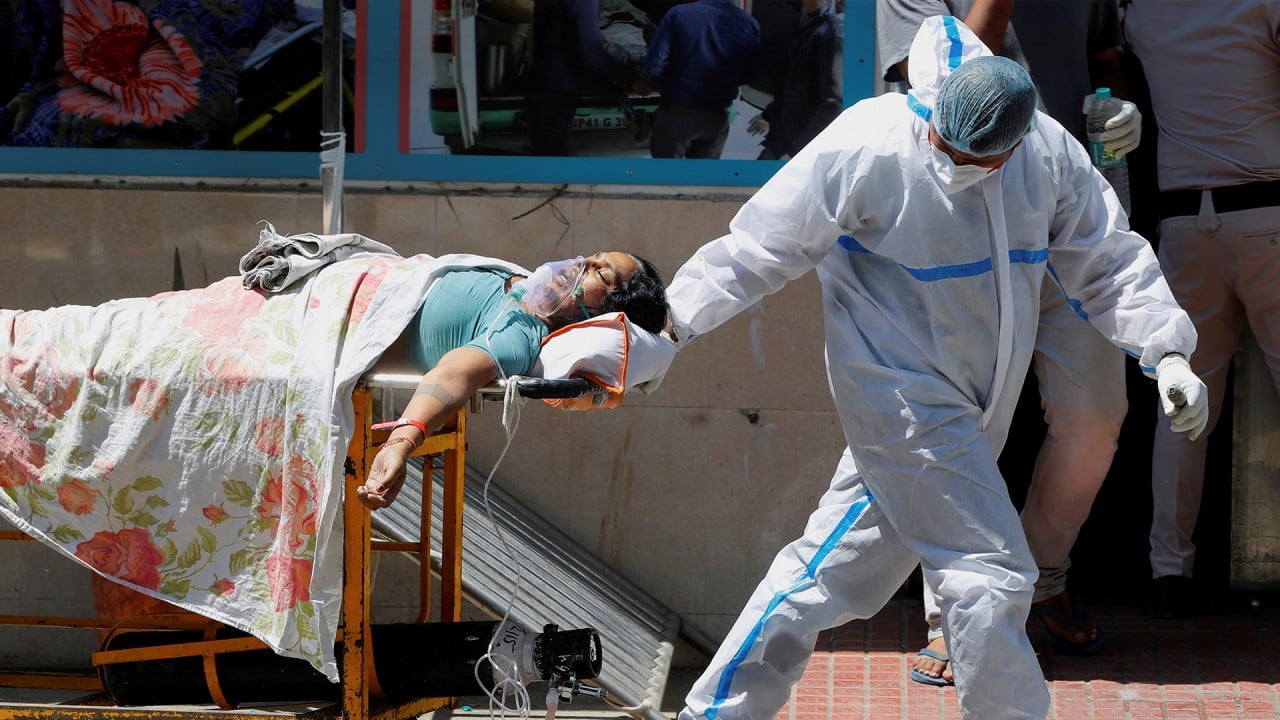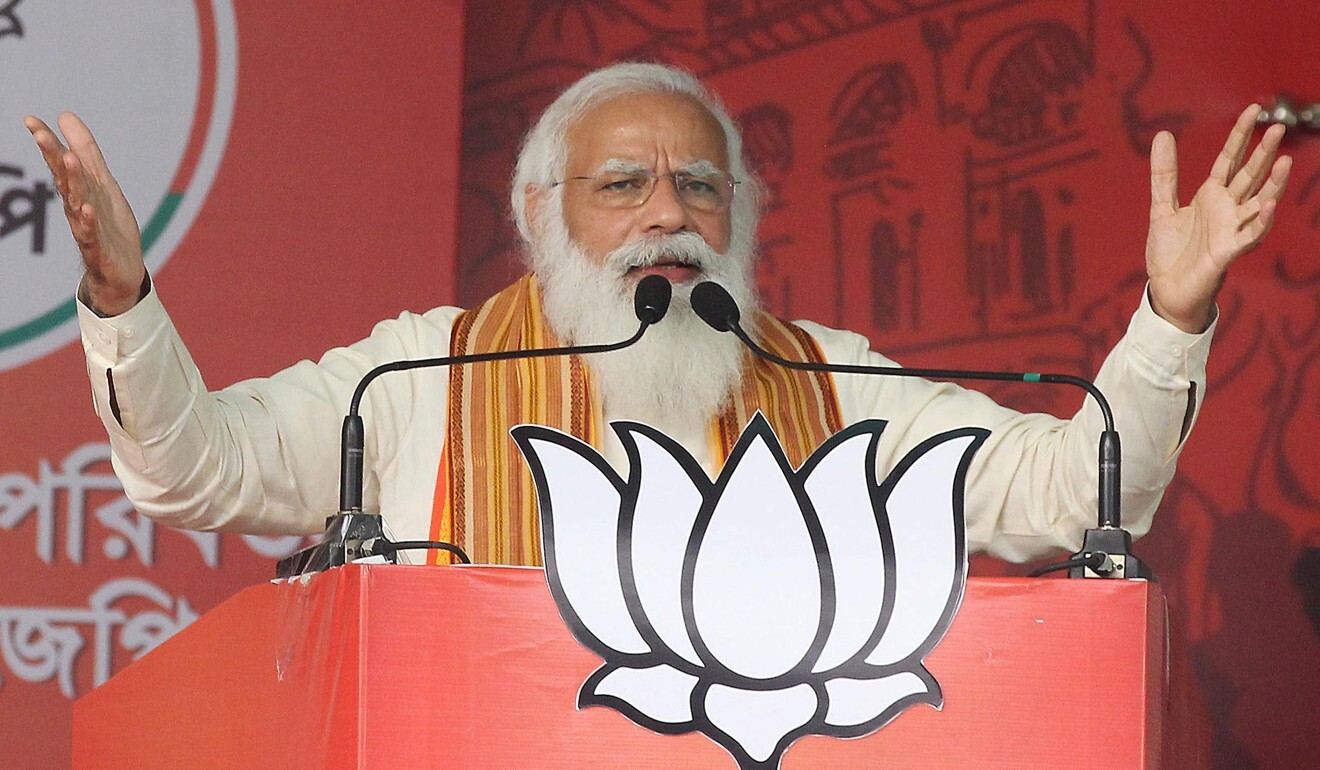
India hits 20 million coronavirus cases as pressure mounts on Modi to declare national lockdown
- Indian prime minister previously said states should consider lockdowns ‘as the last option’ but it may be the only way to stem the death toll
- The debate has been complicated by Modi’s decision last year to impose a nationwide lockdown, which led to a humanitarian crisis
The debate has been complicated by Modi’s move last year to impose a nationwide lockdown without warning, spurring a humanitarian crisis as migrant workers fled on foot to rural areas.

04:15
India’s ruling party loses crucial state election as coronavirus crisis worsens
While Modi is keen to avoid that criticism again, particularly after his Bharatiya Janata Party failed to win an election in West Bengal when votes were counted Sunday, even states run by his party are ignoring his advice.
“One of the problems is this false narrative that it’s either a full lockdown, which equates to economic disaster, or no lockdown, which is a public health disaster,” said Catherine Blish, an infectious disease specialist and global health expert at Stanford Medicine in California.
“What’s happening now is a health and an economic disaster. If you have huge swathes of your population getting sick, that’s not good for your population or your economy.”
In the past week, television channels and social media have been flooded with grim scenes of overcrowded crematoriums and desperate pleas for oxygen from hospitals.

The most immediately effective way to break the chain of transmission is to keep people far enough apart that the virus can’t jump from one to another. Some experts, including Anthony S. Fauci, the top US infectious disease doctor, say a temporary shut down is important.
But others say complete national lockdown isn’t possible and would be disastrous for the poor, who have already suffered the most during the outbreak. The federal government has left it open for states to decide on local lockdowns, and places like the national capital Delhi and the financial hub Mumbai have imposed restrictions – though they are less strict than last year.
People who live hand-to-mouth must go out every day to find something to eat or earn a day’s wages, said Kim Mulholland, an Australian paediatrician and leader of the infection and immunity group at the Murdoch Children’s Research Institute in Melbourne.
As hospitals struggle for oxygen and bodies pile up at crematoriums, a blanket lockdown may only add to the misery. A sudden loss of livelihoods may once again prompt a rush of workers from cities to their hometowns and villages, also helping the virus spread to the hinterlands.
Instead of a strict shutdown, experts said, local governments could stop activities where it is difficult to maintain social distancing.
Australian PM scrambles to address backlash over India travel ban
“I would absolutely curtail indoor retail, restaurants, shops, as much as possible anything that has people getting together indoors,” said Ashish Jha, the dean of Brown University School of Public Health. “I would absolutely ban any large congregations outside, though it’s hard in places in India where things can get pretty crowded naturally.”

